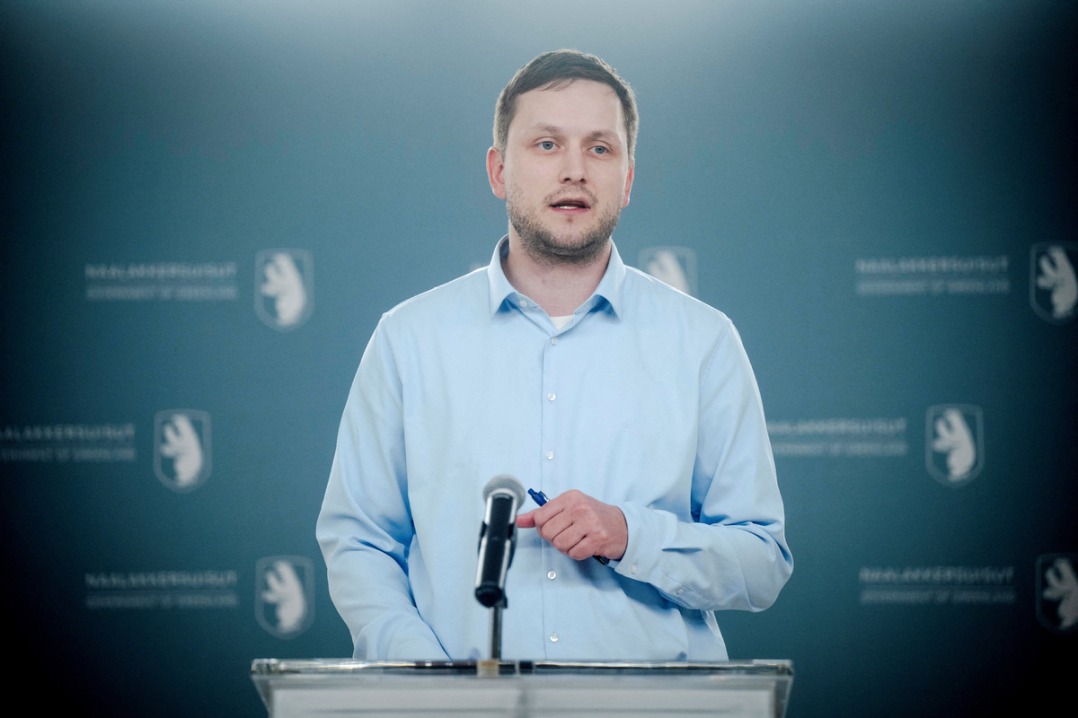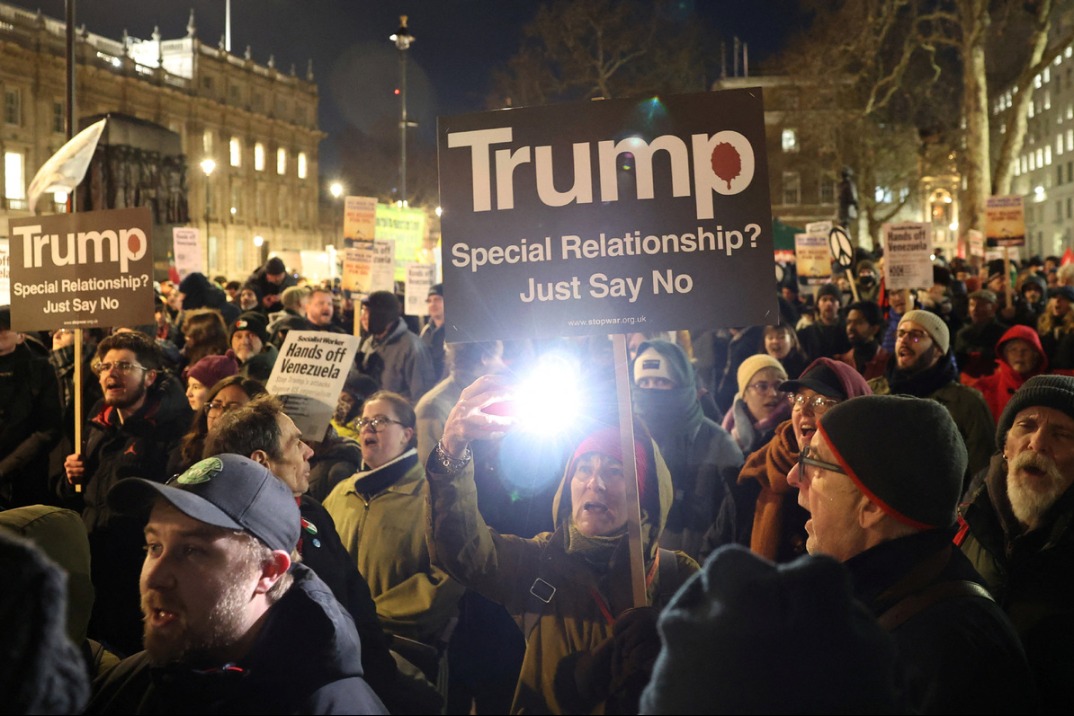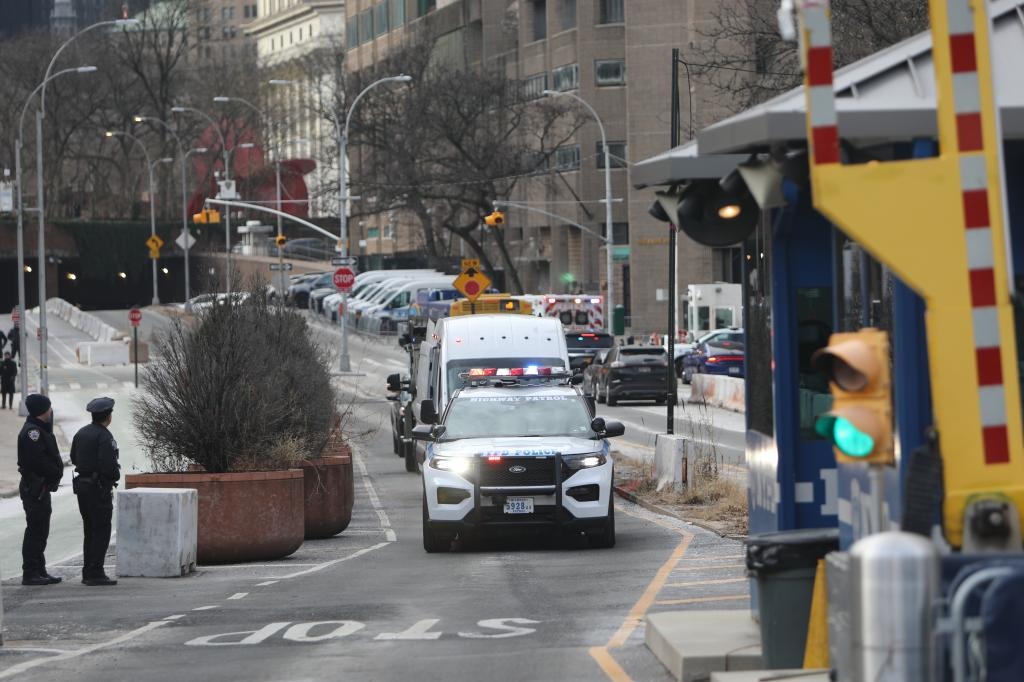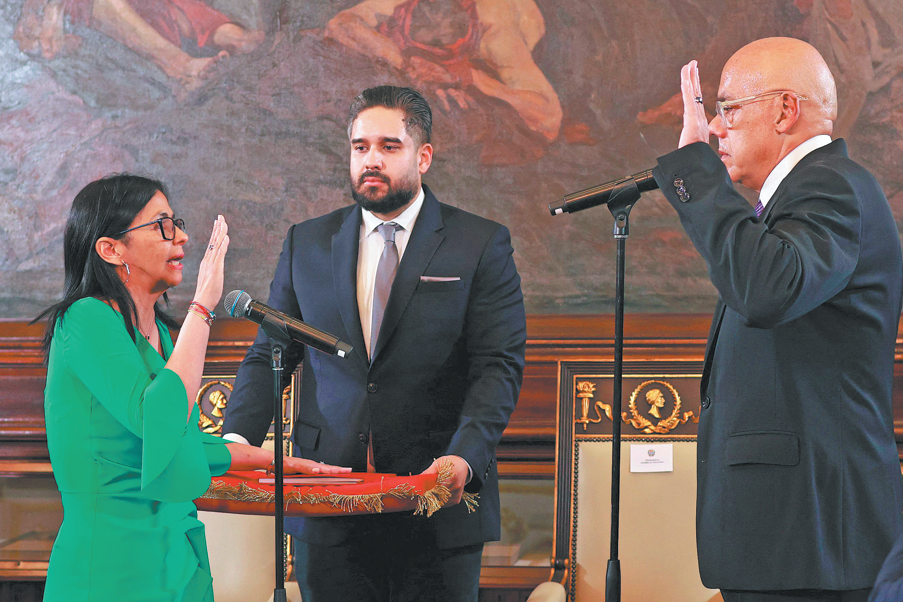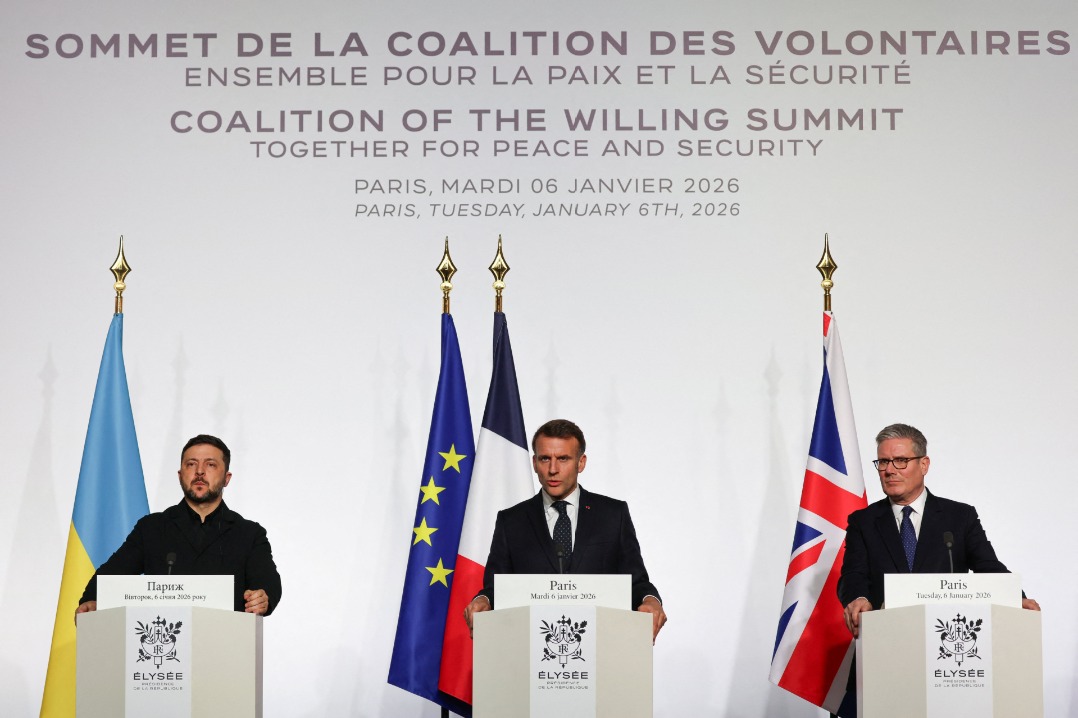Virus spread has US rethinking mask hesitancy

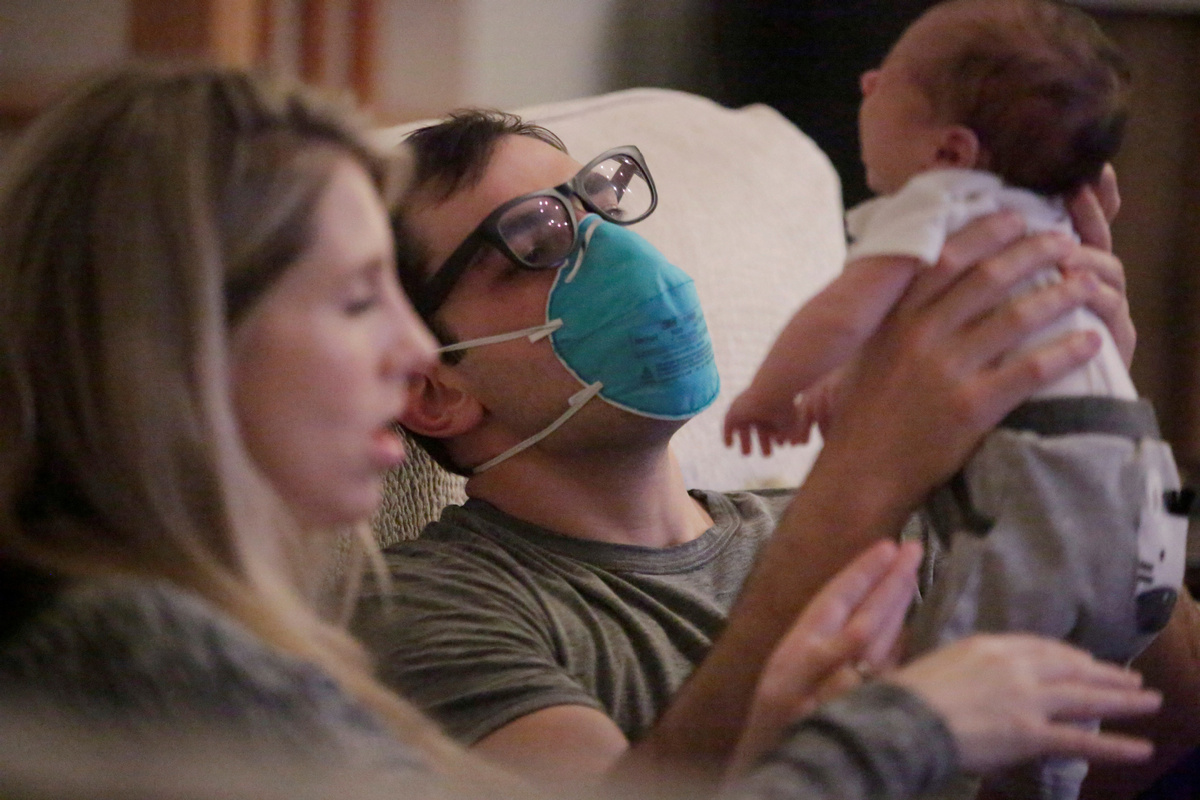
In a reversal from the current US government directive, President Donald Trump said Monday that he could foresee a scenario in which the wearing of masks is recommended for Americans as the nation gears up for a tougher battle with the coronavirus.
The highly transmittable COVID-19 has infected more than 188,000 people and has been attributed to over 3,800 deaths in the US as of Tuesday evening.
For the past month, Americans have been repeatedly told by the Centers for Disease Control and Prevention that masks are for infected persons, not healthy ones.
Interviewed by China Daily last Thursday, Craig Coopersmith, interim director of the Emory Critical Center in Atlanta, Georgia, offered explanations for not wearing a mask.
"The government doesn't recommend it, not because there are not enough masks, but because the masks don't protect you," he said. "The masks that people walk around with in China do not protect you from coronavirus – you need a higher-level mask for that – it only prevents you from spreading the disease to others," he said. "And right now we are already practicing social distancing."
But there's an underlying contradiction to that approach, one that has been noted by Gao Fu, director-general of the Chinese Center for Disease Control and Prevention, also known as the Chinese CDC, during an interview with Science magazine last week.
"This virus is transmitted by droplets and close contact. Droplets play a very important role — you've got to wear a mask, because when you speak, there are always droplets coming out of your mouth. Many people have asymptomatic or presymptomatic infections. If they are wearing face masks, it can prevent droplets that carry the virus from escaping and infecting others," he said.
In other words, a person who considers himself uninfected and therefore not wearing a mask may already have been infected and is unknowingly spreading the virus to others.
The situation could be made worse by the fact that although governments at various levels in the US have now required people to stay at home, varying levels of non-compliance have still been observed, especially among young people.
"It's true that in terms of preventing the disease, the competence of a non-medical mask is highly debatable, and it's true that most people in China are wearing the masks not because they are very afraid of spreading the virus but because they don't want to get it," said Yang Gonghuan, former vice-director of the Chinese CDC, who currently lives in Queens, New York. "But the fact that everybody is wearing one when they are outside has effectively cut off person-to-person transmission, especially in public spaces.
"Mask-wearing is crucial for those who during the current pandemic still need to work in a public space, grocery store keepers and truck drivers, for example. This is to prevent them, some of whom may have been unknowingly infected, from spreading the virus to the many people they come into contact with on a daily basis," she said.
"On the other hand, since they have to be in touch with many people every day, they are the most vulnerable, and can only be sufficiently protected when all the others that come near them are wearing masks," she said. "That's why we advocate masks for all."
Since the beginning of the outbreak in the US, the Columbia University Irving Medical Center has been conducting a Q&A with some of its experts on the center's website. It is expected to serve as public guidance for surviving the pandemic.
Under the question, "Will a mask protect me?" is the answer from the center's leading epidemiologist, Stephen Morse.
"I think the problem with face masks is that people who don't need them ... may make them unavailable to those who really do: Those who are infected and people working in health care, particularly long-term care settings where you have a lot of vulnerable people," said the professor.
His words seemed to have confirmed longtime suspicions among some here in the US, especially members of the local Chinese American community. Many in that community are well aware of the fact that mask-wearing had been strictly enforced in China during the country's own war with coronavirus, a war that, judging by the ground situation now, has largely been won.
"I have spoken to some people from the American CDC – not management but staff members. And I confronted them with whether a concern for mask shortages was behind the advice they give (for health people not to wear a mask)," said Yang. "They have neither confirmed nor denied it."
On top on the logistics are cultural elements, said Madelyn Ross, associate director of the China Studies Program at Johns Hopkins University, which produced the widely cited COVID-19 interactive map.
"In China, people have been wearing masks for many years because of pollution. And it's not considered strange or unusual to wear a mask," she said. "Here we traditionally have been less likely to wear masks, unless the person concerned has gotten ill."
Talking about recent events in which a number of Asian Americans who were wearing masks have become targets of violence in public areas, the professor called the practices "unproductive and shameful".
"Issues of racism aside, the attackers must be assuming that those people are virus-carriers," said Charlie Lai, founder of the Museum of Chinese in America in New York. "But the reality is: The overwhelming [majority] of them are perfectly well and are simply wearing masks as protective measures."
Amid the rising casualties, positions are gradually changing.
"More and more people, whether they are ethnically Chinese or not, are putting on masks. I believe there are people who had wanted to wear a mask but didn't because of the social stigma that has been unfairly associated with it," said Stephanie Wang, who lives in New York. "Now they are under less pressure to do what they believe is the right thing."
Dr Anthony Fauci, an immunologist and a public face of the White House Coronavirus Task Force, said on CBS' 60 Minutes, "Right now, in the United States, people should not be walking around with masks."
Fauci suggested that masks could put users at risk by causing them to touch their face more often.
Now it seems things are about to change. And media across the country are asking why.
"If shortage is indeed part of the reason, then they should at least let people know," said Yang. "In that case, those who cannot find a mask will tend to stay at home, which is exactly what the government is hoping for."
















